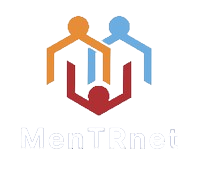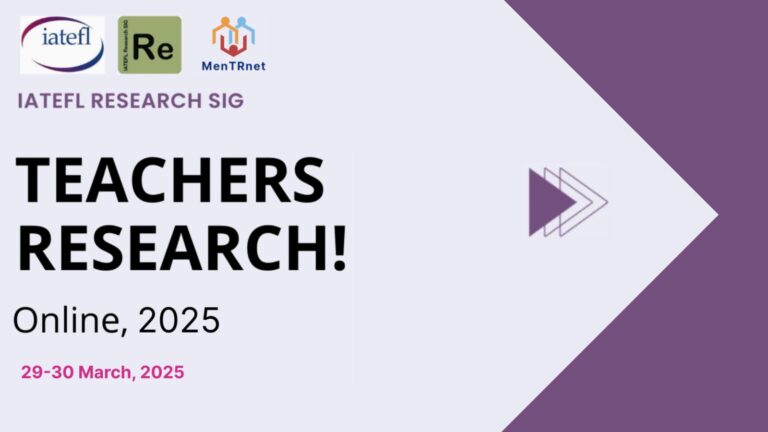
This feature examines the impact of the ‘Mentoring Teacher-Research Workshop Series 2025’ (online from April 19 to May 24) on the development of the participants. It considers the challenges and successes encountered, as well as suggestions for improving future workshop series. Educators from various countries, including Argentina, Azerbaijan, Cameroon, Egypt, Georgia, India, Nepal, Pakistan, and Türkiye, gathered for the workshop series to explore the transformative power of mentoring in Exploratory Action Research as a way to sustain their professional development. The workshop series aimed to empower educators to overcome challenges and enhance their teacher-research mentoring practices, with an emphasis on guidance, reflection, and community building. It was led by a moderating team comprising Richard Smith, Seden Eraldemir Tuyan, Ana García Stone, Ravinarayan Chakrakodi, Mariana Serra, and Omid Kalantar.
About the workshop series
The five-week program, which has now been running for five years (earlier supported by the TESOL CALL-IS Electronic Village Online (EVO) initiative), was designed with specific goals under the MenTRnet umbrella, with the support of the IATEFL Research SIG. One of the objectives was to contribute to the cultivation of the global community of teacher-research mentors (now MenTRnet), fostering collaboration and support among participants. Additionally, the program sought to deepen participants’ understanding and skills in teacher-research mentoring, ensuring they are well-equipped to guide others. Engaging in peer-coaching experiences was another key aspect, as it provided practical opportunities for developing essential mentoring skills. Ultimately, participants were guided to create personalized plans for mentoring teachers interested in conducting research in their own classrooms, thereby fostering a culture of inquiry and continuous improvement in teaching practices.

The final workshop of Mentoring Teacher-Research 2025
Participant reflections
Thematic analysis of the participants’ reflections gathered from their weekly discussions indicated that mentoring can have a significant impact on mentees’ confidence, as well as on the development of strategies for helping them overcome potential barriers. The presence of a supportive global community (MenTRnet, which provided this free workshop series) was seen as valuable in this respect. The analysis also revealed participants’ emphasis on the importance of mentoring in guiding teachers to conduct Exploratory Action Research, and of their own development of mentoring skills through the acquisition of practical strategies and experiences. Some of our workshop participants also recognized the importance of creating a safe and supportive environment for open dialogue as key to effective mentoring. Another theme was the mentor’s responsibility for motivating teachers to do research. This responsibility included: “not overwhelming” teachers; introducing easy-to-use data collection tools such as classroom writing, informal interviews with colleagues or students, and pictures from their classes; and encouraging critical interpretation of findings based on evidence. Also, the importance of continuous dialogue and fostering trust to sustain the teacher’s motivation and keep them engaged in doing classroom-based research was emphasized. Taking all these perspectives into account, it becomes clear that effective teacher-research mentoring involves more than just guidance. It should also foster an environment where teachers feel encouraged to explore and reflect on their practice. Last but not least, participants highlighted the importance of mentors having a thorough knowledge of various types of data, data collection tools, and ethical considerations. The role of a mentor in supporting teacher-researchers can be well understood through the contributions of the workshop participants, especially with regard to navigating the complexities of data collection.
The peer coaching activity also had a positive impact on participants’ views of collaborative learning acting as a catalyst, as evident from the analysis of their responses. One of the key insights into this impact was the concept of “Enhanced appreciation for mutual growth.” A participant described the peer coaching activity as “engaging and useful,” highlighting how collaborative dialogue leads to mutual growth and reflection. Another important insight was “Deeper engagement through active listening and probing questions.” One participant discussed how listening attentively and asking probing questions during peer interactions leads to deeper engagement. These insights reveal that the peer coaching approach not only facilitated a deeper understanding of each other’s experiences but also modelled effective collaborative learning strategies.
The participants’ discussions, reflections and shared experiences also revealed some potential limitations for teacher-research mentoring. For example, limited curricular flexibility in some contexts can hinder the effectiveness of mentoring by suppressing innovative teaching and research practices. Additionally, navigating ethical complexities poses significant challenges for both mentors and teacher-researchers, necessitating careful planning and adherence to established guidelines. The wide range of data collection methods available can also overwhelm teacher-researchers, highlighting the need for mentors to offer targeted support. Furthermore, fostering sustained motivation and engagement beyond initial workshops is a recognized challenge, as maintaining interest in teacher-research activities often depends on the implementation of effective strategies. Unaddressed biases in research can further complicate the mentoring process, as mentors must ensure that teacher-researchers recognize and mitigate these biases. Lastly, technological barriers can disrupt the mentoring relationship, calling for both mentors and teacher-researchers to possess flexibility and troubleshooting skills to navigate potential disruptions.
Recommendations
Finally, recommendations for future workshop preparation included offering additional strategies for developing mentoring skills, such as managing diverse needs and time constraints. These strategies involve adapting support to each teacher’s unique context, striking a balance between support and autonomy, and effective coordinating to meet deadlines and resolve challenges. Additionally, employing flexible mentoring practices (with online and in-person options) can help reduce time constraints. Another recommendation was to utilize collaborative learning models for small-scale collective research, to reduce individual pressure. By addressing these areas, future workshops can build on the successes of this series and further enrich the teacher-research mentoring community.
You can also read the personal reflection of one of the participants, Canan Köse
About the Author(s)

Seden Eraldemir Tuyan
Seden Eraldemir Tuyan is a senior lecturer at Çağ University in Türkiye with a PhD in English Language Teaching. She has mentored EFL teachers in both pre-service and in-service contexts and co-moderated workshops with TESOL Electronic Village Online and MenTRnet. Her interests include psychological perspectives of ELT, SEL, TR mentoring, and professional development.



[…] the Mentoring Teacher-Research Workshop Series was an eye-opening and deeply fulfilling experience for me as an English instructor with over 15 […]
Thank you